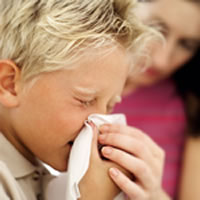It's a New Day in Public Health.
The Florida Department of Health works to protect, promote, and improve the health of all people in Florida through integrated state, county, and community efforts.
Disease Prevention Tips
Epidemiology
- 321-454-7101
- Brevard.EPI@flhealth.gov
-
Fax
321-454-7128 -
Mailing Address
2565 Judge Fran Jamieson Way
Viera, FL 32940
Handwashing
Why should I wash my hands?
Hand washing is the most effective way of preventing disease and protecting yourself and your family from harmful germs.
How should I wash my hands?
There are five easy steps to proper hand washing:
- Wet your hands under warm running water, apply soap.
- Rub your hands with soap under warm running water.
- Scrub your hands for a count of 20 seconds and clean between your fingers and under your finger nails.
- Rinse your hands under clean warm water.
- Dry your hands on a paper towel or with an air dryer.
When soap and water are not available, alcohol-based disposable hand wipes or gel sanitizers may be used. The alcohol in the gel kills the germs. However, if your hands are visibly soiled, you should wash them with soap and water.
When should I wash my hands?
Handwashing should be done often. You should wash your hands:
- Before you eat
- After you use the bathroom
- Before you feed or play with a baby
- After cleaning a baby
- Before and after preparing food
- After handling raw poultry, seafood, and meat
- After playing with pets and other animals
- After caring for a sick person
- Whenever you hands are dirty
For more resources and information on this topic, visit the Florida Department of Health's Handwashing webpage.
Food Preparation
There are four easy steps to keep food safe from bacteria.
- Clean. Wash hands, utensils, and surfaces with hot soapy water before and after food preparation, and especially after preparing meat, poultry, eggs, or seafood to protect adequately against bacteria. Using a disinfectant cleaner or a mixture of bleach and water on surfaces and antibacterial soap on hands can provide some added protection.
- Separate. Keep raw meat, poultry, eggs, and seafood and their juices away from ready-to-eat foods; never place cooked food on an unwashed plate that previously held raw meat, poultry, eggs, or seafood.
- Cook. Cook food to the proper internal temperatures (this varies for different cuts and types of meat and poultry) and use a food thermometer to check if the food is fully cooked. Cook eggs until both the yolk and white are firm.
- Chill. Refrigerate or freeze perishables, prepared food and leftovers within two hours and make sure the refrigerator is set at no higher than 40 degrees Fahrenheit and that the freezer unit is set at 0 degrees Fahrenheit.

For more resources and information on proper food handling techniques visit the Fight Bac website.
Disinfection
Tips for effective disinfection:
- Wash your cutting boards, dishes, utensils, and counter tops with hot soapy water after preparing each food item and before you go on to the next food.
- Consider using paper towels to clean up kitchen surfaces.
- Using a disinfectant cleaner or a mixture of bleach and water on surfaces and antibacterial soap on hands can provide some added protection.
- If you use cloth towels, wash them often in the hot cycle of your washing machine.
For more resources and information on disinfection techniques visit the Fight Bac website.
Preventing the Flu
The single best way to prevent the flu is to get vaccinated each year, but good health habits and antiviral medications are other measures that can help protect against the flu.
- Avoid close contact

- Stay home when you are sick
- Cover your mouth and nose when coughing or sneezing
- Clean your hands
- Avoid touching your eyes, nose or mouth
Get plenty of rest, exercise, and fluids. Eat nutritious food.
For more resources and information on fthe flu, visit the Florida Department of Health's Influenza webpage.
More Healthy Habits
Hygiene
In addition to handwashing, other forms of hygiene are important for good health. Keep skin, hair, and nails clean, especially when preparing, serving, and cooking foods.
Coughing and Sneezing Etiquette
- Cough or sneeze into a tissue and then throw it away.
- Cover your cough or sneeze into the crook of your elbow if you do not have a tissue.
- Then, clean your hands, and do so every time you cough or sneeze.



Connect with DOH